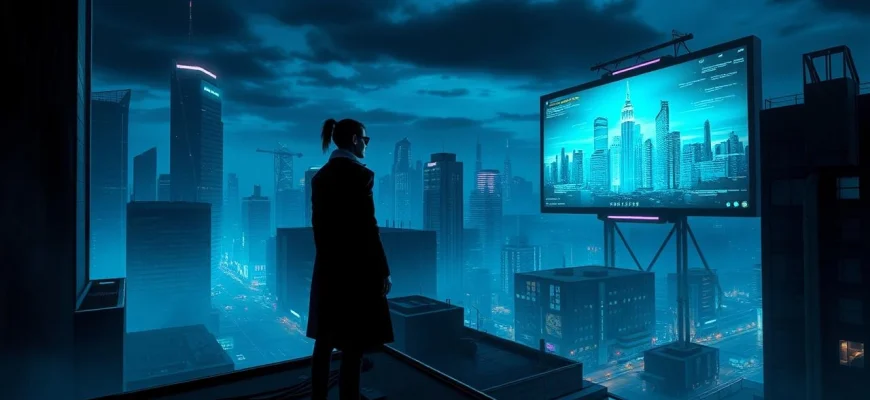If you're a fan of 'The Matrix' (1999) and its mind-bending blend of cyberpunk action, philosophical depth, and groundbreaking visual effects, you're in for a treat. This article explores 10 movies and shows that capture the same thrilling essence, whether through dystopian futures, reality-bending concepts, or high-octane action. Dive in to discover your next cinematic obsession!
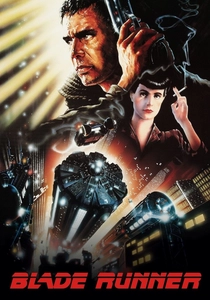
Blade Runner (1982)
Description: Blade Runner and The Matrix both explore what it means to be human in a technologically advanced world. The films share a cyberpunk aesthetic, with themes of artificial intelligence, identity, and rebellion against oppressive systems. The philosophical undertones and visual style have influenced countless sci-fi films, including The Matrix.
Fact: The film is based on Philip K. Dick's novel Do Androids Dream of Electric Sheep? There are multiple versions of the film, with different endings. The film initially received mixed reviews but is now considered a classic.
 Watch Now
Watch Now 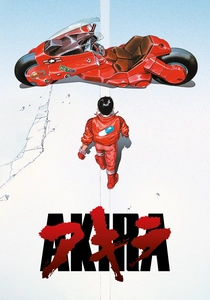
Akira (1988)
Description: Akira's influence on The Matrix is evident in its cyberpunk themes and visual style. Both films explore rebellion against oppressive systems and the potential of human evolution. The Matrix's action sequences and dystopian setting owe much to Akira's groundbreaking animation.
Fact: Akira was a major influence on The Wachowskis. The film is based on Katsuhiro Otomo's manga. It was one of the first anime films to gain international acclaim.
 Watch Now
Watch Now 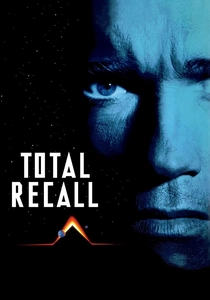
Total Recall (1990)
Description: Total Recall, like The Matrix, plays with the idea of reality being a construct. The protagonist's journey to uncover the truth and the film's action-packed sequences are reminiscent of Neo's path in The Matrix. Both films question the nature of memory and identity.
Fact: Based on a Philip K. Dick short story. Arnold Schwarzenegger starred in the film. The film's ending is ambiguous, leaving the reality of events open to interpretation.
 Watch Now
Watch Now 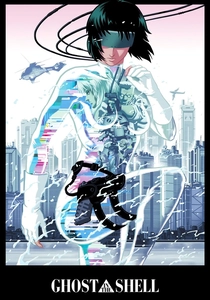
Ghost in the Shell (1995)
Description: Ghost in the Shell is a seminal work in cyberpunk, much like The Matrix. Both films deal with themes of identity, consciousness, and the merging of human and machine. The Matrix's visual style and philosophical depth were heavily influenced by this anime.
Fact: The film inspired The Wachowskis, creators of The Matrix. It's based on the manga by Masamune Shirow. The film explores the concept of 'ghosts' or souls in machines.
 Watch Now
Watch Now 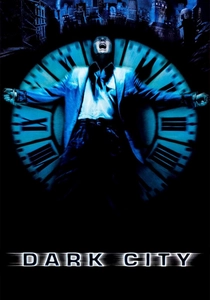
Dark City (1998)
Description: Dark City, like The Matrix, presents a dystopian world where reality is manipulated by unseen forces. Both films feature protagonists who awaken to the truth about their existence and rebel against their controllers. The neo-noir visuals and themes of memory and identity are strongly aligned with The Matrix.
Fact: The director, Alex Proyas, also directed The Crow. The film was a box office failure but gained a cult following. It was originally released without the opening narration, which was added later.
 Watch Now
Watch Now 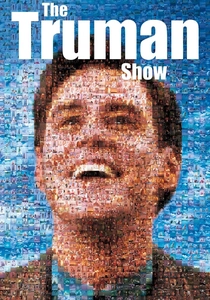
The Truman Show (1998)
Description: While not a sci-fi action film, The Truman Show shares The Matrix's theme of a fabricated reality. Both protagonists discover their lives are constructs and seek to break free. The films explore the manipulation of perception and the desire for authenticity.
Fact: Jim Carrey starred in the film, showcasing his dramatic range. The concept was inspired by an episode of The Twilight Zone. The film's title references the 'true man' discovering his reality.
 Watch Now
Watch Now 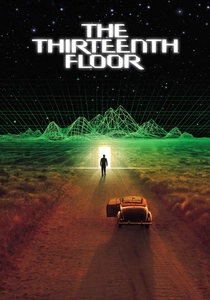
The Thirteenth Floor (1999)
Description: This film shares The Matrix's theme of simulated reality, where characters discover their world is a computer-generated construct. Both movies delve into identity crises and the existential dread of realizing one's existence might be artificial. The noir aesthetic and mystery elements also parallel The Matrix's style.
Fact: The film is based on the 1964 novel Simulacron-It was released the same year as The Matrix but received less attention. The movie explores the idea of nested simulations, similar to Inception.
 Watch Now
Watch Now 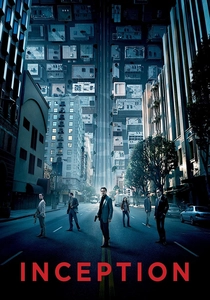
Inception (2010)
Description: Like The Matrix, Inception explores the nature of reality and dreams, blending action with deep philosophical questions. Both films feature protagonists who navigate layered realities, challenging the audience's perception of what is real. The visual effects and mind-bending sequences in Inception are reminiscent of The Matrix's groundbreaking bullet-time effects.
Fact: Christopher Nolan wrote the script for Inception over the course of 10 years. The spinning top at the end was not CGI; it was a practical effect. The film's dream-sharing concept was inspired by lucid dreaming.
 Watch Now
Watch Now 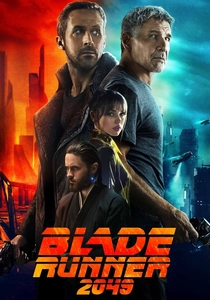
Blade Runner 2049 (2017)
Description: This sequel to Blade Runner continues the exploration of artificial life and reality, much like The Matrix. The film's stunning visuals and deep existential questions mirror The Matrix's blend of action and philosophy. Both films feature protagonists who question their reality and purpose.
Fact: Denis Villeneuve directed the film, taking over from Ridley Scott. The film's cinematography by Roger Deakins won an Academy Award. It took 35 years for a sequel to be made after the original.
 Watch Now
Watch Now 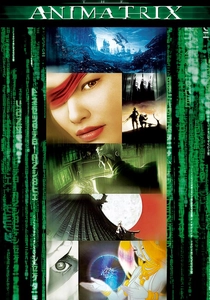
The Animatrix (2003)
Description: The Animatrix is a direct companion to The Matrix, expanding its universe through animated shorts. It explores the backstory of the Matrix and its philosophical themes, with the same blend of action and deep thought. The anthology format allows for diverse visual styles, all rooted in The Matrix's lore.
Fact: It consists of nine animated short films. The Wachowskis wrote and produced the project. It includes contributions from renowned anime directors.
 Watch Now
Watch Now 
